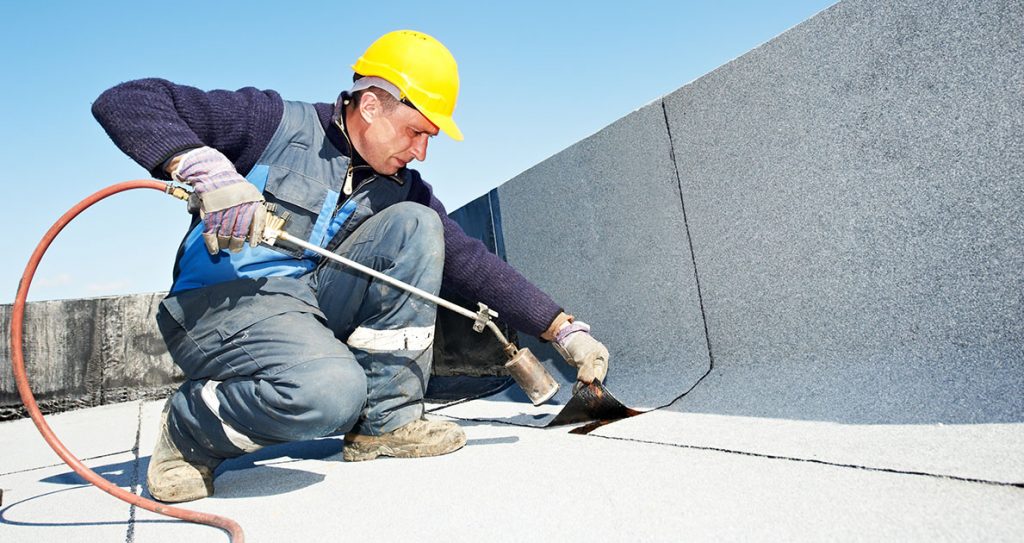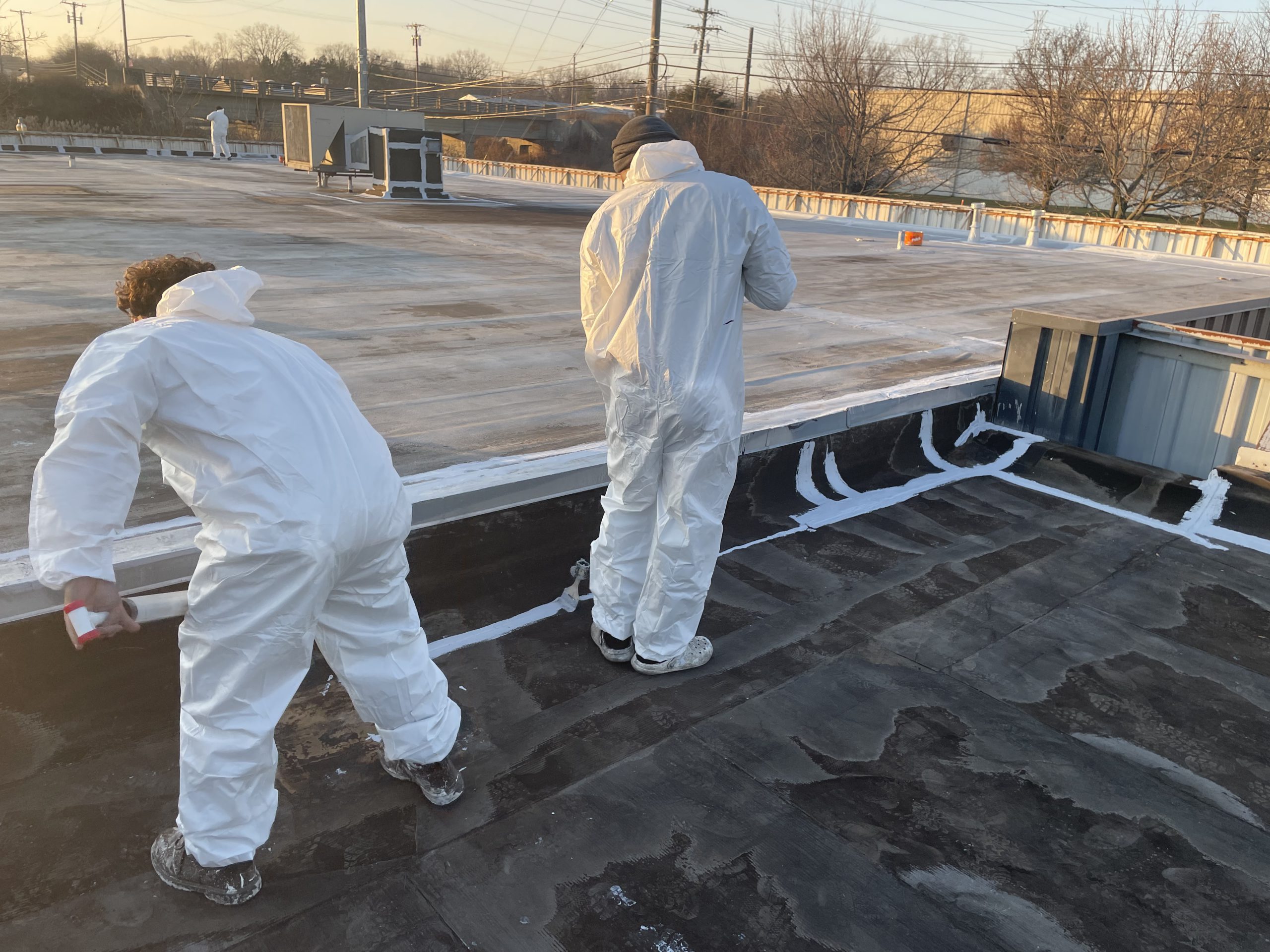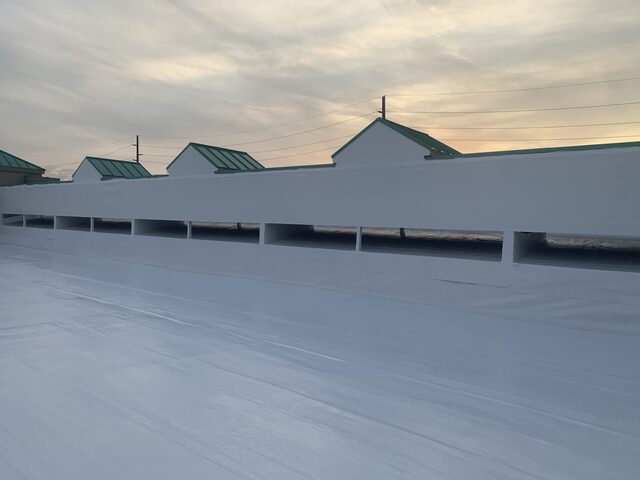How Long Does It Take to Install a Commercial Roof in Detroit?

Detroit is – and always has been – an opportunity of a landscape for all sorts of businesses. If you are a building owner or manager in Detroit, you may be wondering how long it takes to install a commercial roof for your property.
Knowing how long it takes to install a commercial roof can help you plan ahead, choose the right roofing contractor, and ensure a smooth and timely installation process.
By the end of this article, you will have a better idea of how long it takes to install a commercial roof and what you can do to make it easier and faster. Plus – we may know some people who can help install a commercial roof in Detroit.
Factors that Affect the Installation Time of a Commercial Roof
The installation time of a commercial roof varies depending on several factors:
- Roof Size and Shape: The larger and more complex the roof, the longer it will take to install. For example, a roof with multiple penetrations and curbs will take longer than a simple roof with few obstacles.
- The Type and Availability of Your Chosen Roofing Material: The type of roofing material can affect the installation time in terms of delivery, preparation, application, and curing. Additionally, some roofing materials may be in high demand or low supply, which can cause delays or shortages.
- Scope and Complexity of the Project: The size and complexity of the project affect installation time in terms of labor, equipment, and coordination. For example, a complete tear-off and replacement will take longer than a simple overlay or repair.
- Weather Conditions and Season: The weather conditions and season can affect the installation time especially when it comes to safety – which is paramount to our principles. Extreme heat or cold can pose health risks for workers and lead to delays when working is unsafe. Rain or snow can also cause delays due to safety hazards or water damage.
- Legal Requirements and Permits: The legal requirements and permits can affect any sort of installation time in terms of compliance, documentation, and inspection. Roofing projects often require building permits and zoning approvals. Fire codes or environmental regulations may also need to be followed before, during, or after the installation. Additionally, some projects may require inspections by city officials or third-party agencies to ensure quality and safety standards.
A professional roofing contractor in Detroit (like ourselves) can help you mitigate or overcome these factors and provide an accurate estimate based on your specific project.
Average Installation Time for Different Types of Commercial Roofs
The average installation time for different types of commercial roofs can vary depending on the factors mentioned above, but here are some general estimates based on industry standards and data from reliable sources:
- Metal Roofs: Metal roofs are fast and easy to install because they come in pre-fabricated panels that can be delivered and installed quickly. The average installation time for metal roofs is 1-2 days per 10,000 square feet.
- Flat Roofs: Flat roofs, like EPDM roofing, are economical and versatile, as they can accommodate various roofing materials and systems. The average installation time for flat roofs is about 2-3 days per 10,000 square feet.
- Slope Roofs: Slope roofs are durable and attractive, offering better drainage and aesthetics than flat roofs. The average installation time for slope roofs is about 3-4 days per 10,000 square feet.
- Tile Roofs: Tile roofs are long-lasting and resistant to fire and weather because they are made from clay, concrete, or slate materials. Here’s a great example of the pros and the cons. The average installation time for tile roofs is around 4-5 days per 10,000 square feet.
The type of roof you choose for your commercial building can have advantages and disadvantages in terms of installation time, durability, performance, cost, and maintenance..
To help you decide which type of roof is best for your commercial building, you should meet with and consult a professional roofing contractor who can provide expert advice, recommendations, and options based on your needs and preferences.
Tips and Tricks for the Process
Here are some practical tips and best practices for building owners and managers to follow before, during, and after the installation process:
- Choose a reputable, experienced roofing contractor who provides quality workmanship, a warranty, and exceptional customer service. Check their credentials, references, reviews, and portfolio before hiring them – be it LinkedIn, Yelp, their personal Website and most importantly – word-of-mouth from those that you trust in your community. What looks great, what doesn’t; conversation is the best starter.
- Ask for a written contract that outlines the scope, timeline, cost, and terms of the project. And use the above to determine what questions you have, so that you come to the table as the expert just as much as they are.
- Plan ahead and schedule the installation during the off-season or low-demand periods to avoid delays and interruptions. Consider the weather forecast, the availability of labor and materials, and the impact on your business operations.
- Communicate with your tenants, employees, customers, and suppliers about the project and how it may affect them. This is a team effort, and any work done will effect this team positively and negatively, so they should be prepared in advance to answer any questions.
- Prepare the site and clear any obstacles or hazards that may hinder the installation process. Remove furniture, equipment, or valuables from the roof and the surrounding area. Secure loose wires, pipes, or vents that may interfere with the installation. Provide adequate access, space, and power for the roofing contractor and their crew.
- Communicate with the roofing contractor regularly and monitor the progress and status of the project. Ask for updates, reports, or photos of the work being done. Address any issues or concerns that arise during the installation right away. Provide feedback or suggestions that may improve the finished roof’s quality or efficiency.
- Review the final product and provide feedback or request adjustments if needed. Don’t be afraid to do so. It’s their business and your long-term investment. Inspect the roof for defects, errors, or inconsistencies, and test it for leaks, cracks, or gaps.
- Finally, close the gap. Ask for a final invoice and a warranty certificate. Provide a testimonial or a review for the roofing contractor if you are satisfied with their work.
By following these tips, you can ensure a smooth and timely installation process of a commercial roof and enjoy the benefits of having a well-installed commercial roof that will protect your building from weather damage, enhance its appearance, improve its energy efficiency, and increase its value.
Call Us for a Commercial Roof Installation in Detroit
If you need commercial roof installation in Detroit or the surrounding areas, don’t hesitate to call us at (248) 788-6010. We are Silicoat Roofing, a professional contractor specializing in commercial roof installation, repair, and maintenance. We have been serving the industrial and commercial roofing needs of Detroit and the surrounding areas for over 20 years, and we have the experience, expertise, and equipment to handle any roofing project. We also offer a 20-Year Leak-Free Guarantee.
To find out how long it will take to install your commercial roof in Detroit, don’t hesitate to contact us. You can also fill out our online form to request a free quote or schedule a consultation. We look forward to hearing from you and serving your Deroite roofing needs.


